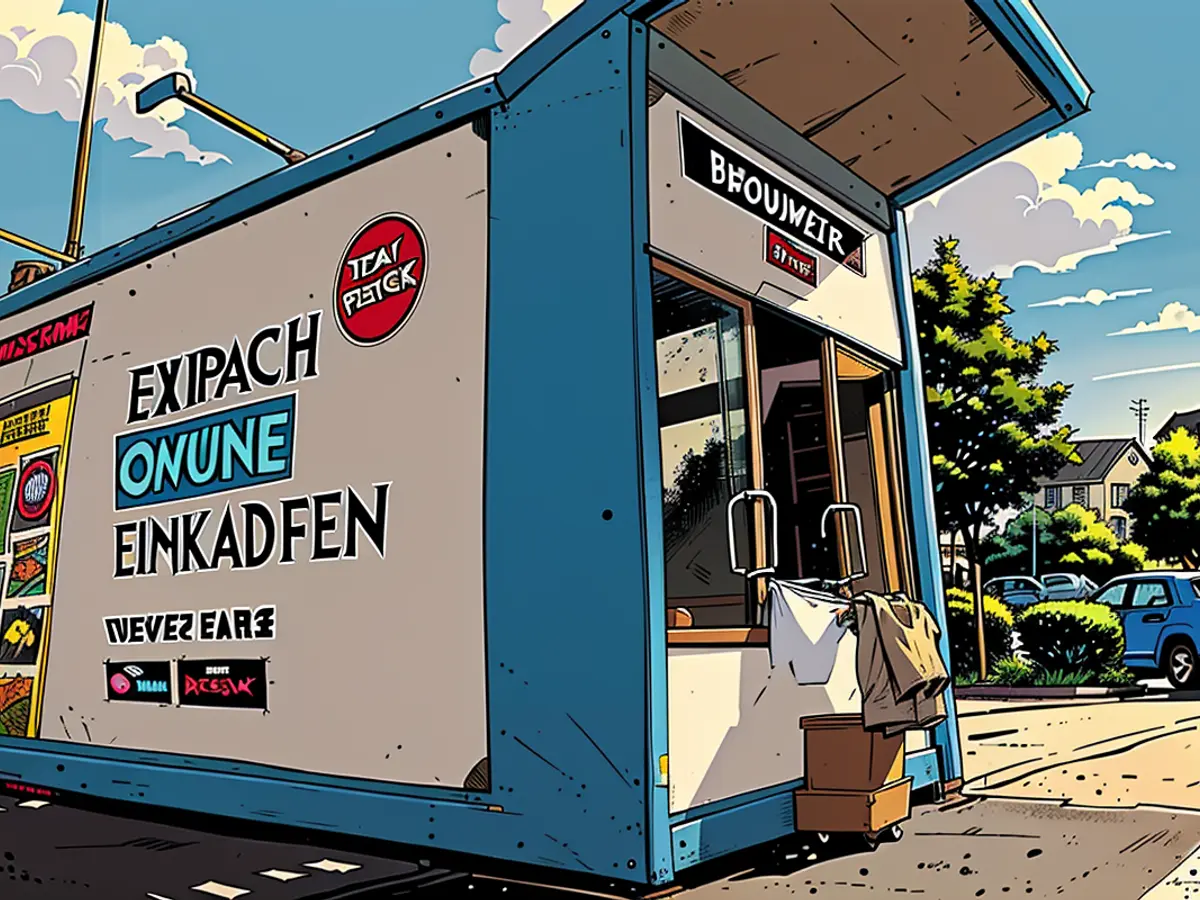Supermarkets test self-pickup machines
In every second Aldi discount market, customers can place online orders and pick up their shopping pre-packed. Aldi South is now testing this as well. However, an expert sees no successful business model in it.
Aldi South has recently started operating some pick-up automats to test their functionality and gain insights into the changing customer demand. The test began in mid-July and is reportedly time- and location-limited, according to the company.
One automat is in Düsseldorf, two are in Mülheim an der Ruhr. For the discount giant with its approximately 2,000 stores in Germany, this is an innovative niche project that could provide a better understanding of the new shopping behavior in the era of online shopping. Another example is delivery services: Aldi South has been testing this since the previous autumn in a similarly limited version. Rewe, on the other hand, has been doing this on a larger scale for a longer time.
Customers who order online through the website mein-aldi.de or the associated app can pick up their goods the next day or up to five working days later - the access to the goods on the day of the order is not possible. The interior of the approximately seven-meter-long, three-meter-wide, and three-and-a-half-meter-high container is cooled, so there is also fresh produce. Frozen goods are also for sale. If a customer orders cleaning cloths, they will be served chilled.
With a QR code to the paper bag
The assortment is smaller than the product range in the store. After the online purchase, the consumer receives a QR code. This is scanned at the machine, which then opens a plexiglass door and presents a paper bag with the purchased products. The pick-up is not available around the clock at Aldi South but only within a specific time window - in Düsseldorf, pick-up must be between 3:15 PM and 9 PM. The minimum order value is 20 Euro, and there is no extra charge for the automat. The container, in which the goods are, stands directly next to a conventional Aldi store on a parking lot.
The automat is a side branch of the so-called Click-&-Collect system. With this, one orders online and picks up the goods later. This saves time waiting in line at the cash register and long searches in the shop. Rewe, on the other hand, places relatively strong emphasis on Click & Collect, as the pick-up is possible in every second of its stores with its 1,800 locations in Germany.
However, it's mostly about going to a specific area of the business and having the order handed over by an employee. Pick-up automats, in other words, without contact to a person, have Rewe nationwide only 16. These can be used around the clock, most of them are in Cologne and Berlin.
"The stations are another offer to give the customer more flexibility in shopping," says a Rewe spokesperson. "Especially in inner cities, where there is not enough space for a Rewe market with a pick-up service, the format of pick-up stations is attractive." Rewe does not have ambitious expansion plans for its automat presence: The expansion of the stationary pick-up services in the market is preferred, according to the supermarket chain.
Branch experts expressed reservations about the economic potential of this offer. "The automatic vending machine may be expensive, given that it is refrigerated and requires electricity," says Marketing Professor Martin Fassnacht from the WHU - Otto Beisheim School of Management. Economically, this makes little sense, especially since it could result in fewer impulse purchases: "People no longer go to the stores and do not buy spontaneously as a result." While there are spontaneous purchases on the internet that online retailers benefit from, these are likely to have little impact on discount stores like Aldi.
In principle, pick-up automats in retail have the advantage that consumers are no longer bound by opening hours and can shop around the clock. This works well for retail giants like Amazon with its "Locker" automats. However, in the food retail sector, opening hours are already quite extensive, and few customers would be annoyed by closed stores. "Some supermarkets are open until midnight, while others start selling early in the morning," he explains.
"Aldi is leaving the only small advantage unused"
For a few people, it could still be an advantage to come to groceries in the middle of the night, says Fassnacht - this should be the case with the Rewe pick-up automats of Aldi Süd. The three containers of Aldi Süd are only available to customers during the opening hours of the adjacent store. "In this way, the discounter is leaving the only small advantage of its concept unused," says Fassnacht.
And what about the aspect that consumers can save time by ordering groceries via the app and picking them up at the pick-up automats on the way home? "The time factor plays a subordinate role for consumers, as they usually do not have to wait long in stores," says Fassnacht. Supermarkets and discounters have also shortened waiting times through checkout automats.
As for the other part of the Aldi universe, Aldi Nord is currently not getting involved with pick-up automats and other Click-&-Collect offers. A company spokesperson explains that they want to make shopping as simple as possible for their customers. "That's why we focus especially on the modernization of our stores and improving the shopping experience for our customers for a quick and easy shopping experience," he explains.
Aldi North, unlike Aldi South and Rewe, has chosen not to implement pick-up automats or other Click-&-Collect services, focusing instead on modernizing their stores and enhancing the overall shopping experience for their customers. Despite the popularity of such services in other economy food markets like Rewe, experts like Marketing Professor Martin Fassnacht question their economic viability due to factors like high operational costs and the potential decrease in impulse purchases.








